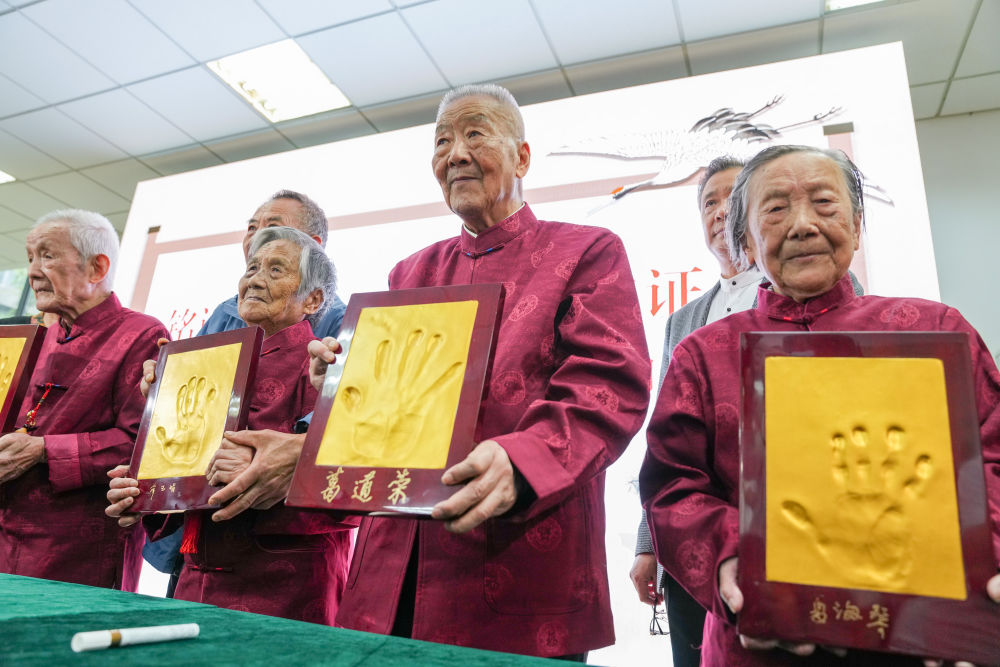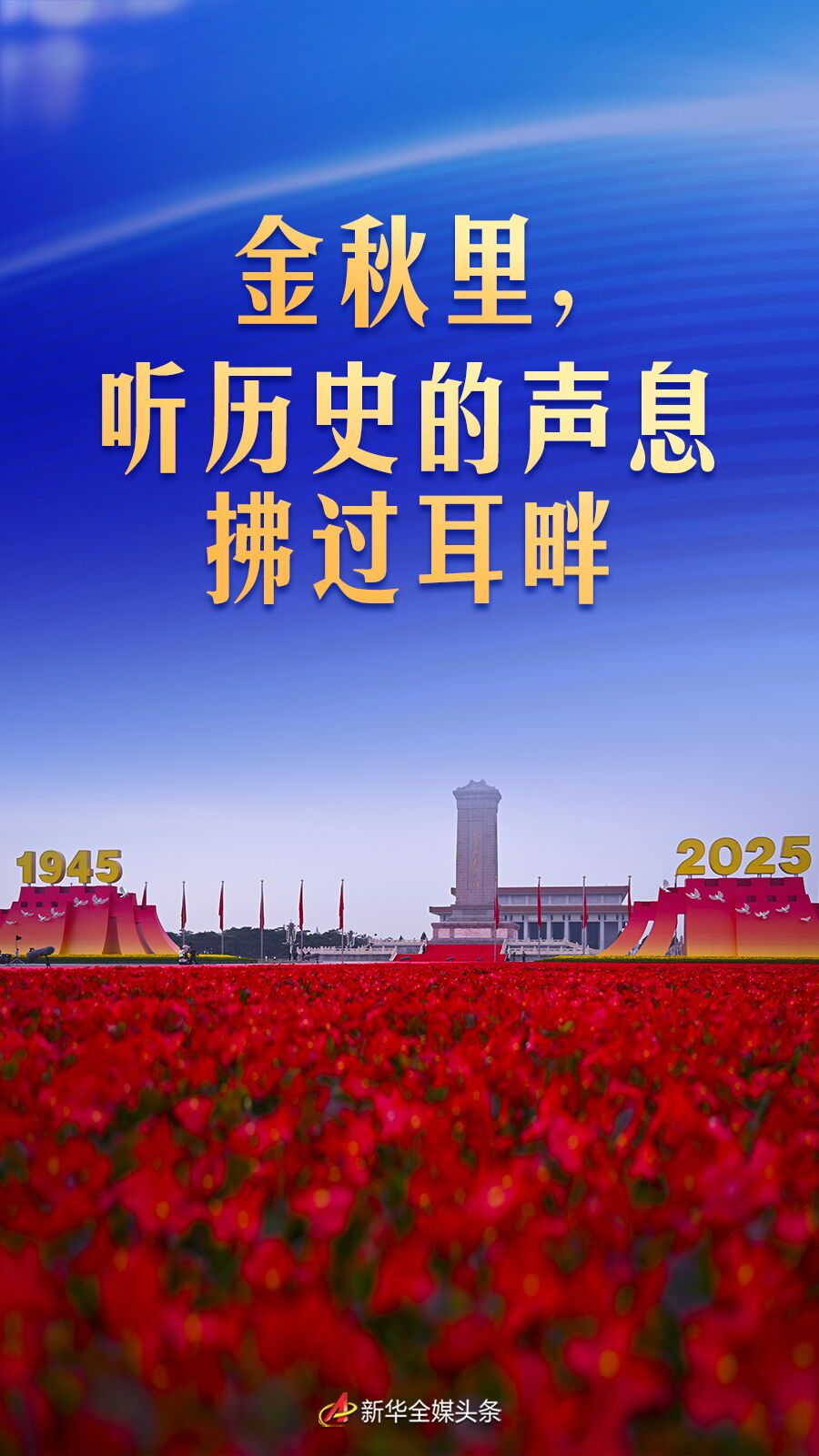“The Chinese People’s War of Resistance Against Japanese Aggression was a great and arduous struggle. Under the banner of the Anti-Japanese National United Front initiated by the Communist Party of China, the Chinese people fought tenaciously against a powerful enemy, building a Great Wall with their flesh and blood, achieving the first complete victory against foreign invasion in modern times. The Chinese People’s War of Resistance was an important part of the World Anti-Fascist War, and the Chinese people made significant contributions to saving human civilization and defending world peace at great national sacrifice.”
On September 3, an important speech delivered at Tiananmen Gate gathered tremendous strength for striving toward the great rejuvenation of the Chinese nation and promoting the building of a community with a shared future for mankind.
Several days before the commemorative event, a political commentary was broadcast, titled “Forever Defenders of Chinese Civilizational Achievements and Human Peace—Written on the 80th Anniversary of the Victory of the Chinese People’s War of Resistance Against Japanese Aggression and the World Anti-Fascist War.” The resonance among readers mirrored the emotions felt during its writing: looking back at the years of struggle marked by both suffering and glory, a tide of thoughts and feelings surges within.
This political commentary is supported by profound history, including many resistance figures and specific scenes. After its publication, the response was enthusiastic. Reporting continued around the world, with interviewees’ accounts bringing us back into those monumental years.
We clearly sense that in the flowing bloodline of the nation, the footsteps of ancestors still echo. The great spirit of resistance forged through unyielding struggle is growing into new strength on the land of the new era.
Scars as Witness, Memory Embedded in Bloodline
In the cold winter of 1937 in Nanjing, the chill of bayonets piercing the air remains hidden in the deep brown scar on Xue Yujuan’s chest. It is a pain that remains unforgettable no matter how many years pass—Xue Yujuan, only 14 years old at the time, watched her home turn into a living hell under the atrocities of the invaders.
“Even decades later, she would often be awakened by nightmares.” As a child, Ren Ying listened to her grandmother’s stories and felt only fear. As an adult, after becoming a teacher, she came to understand that behind the scar on her grandmother’s chest lay the suffering and humiliation endured by a nation, a painful memory that every Chinese person must confront.

“Scars may heal, but memory must not fade.” As a third-generation inheritor of the historical memory of the Nanjing Massacre, Ren Ying brought the reader “Blood and Fire Memory,” which she helped compile, into communities, gradually collecting and organizing survivors’ stories. “This is my grandmother’s wish and a historical responsibility.”
In December 2024, on another cold and damp winter day, Ren Ying’s 9-year-old son Yu Tianxiang stood before his entire school. He spoke solemnly, word by word: “When the Japanese soldiers broke into the house, my great-grandmother hid in a closet, not daring to make a sound…” The speaker’s voice still carried a child’s innocence, while the silence below was filled with the weight of history.
At the start of the school year, Yu Tianxiang packed “Blood and Fire Memory” into his backpack: “I want more people to know that my great-grandmother’s scar is a warning bell for all of us.”
History is the experience of countless living beings. Every individual who struggled, resisted, and sacrificed during the war deserves to be remembered forever.
A piece of birch bark, its edges long dried and cracked, about the size of a palm, is carefully framed in glass and displayed in Ma Jimin’s home, next to a black-and-white photo of his grandfather, General Yang Jingyu.
“This was given to my father in 1958 by veterans of the Northeast Anti-Japanese United Army. They said that back then, my grandfather relied on chewing such bark and grass roots to keep fighting.” Every time he gazes at this bark, Ma Jimin chokes up. “When I was a child, my mother would tell us stories using this bark. She said that

